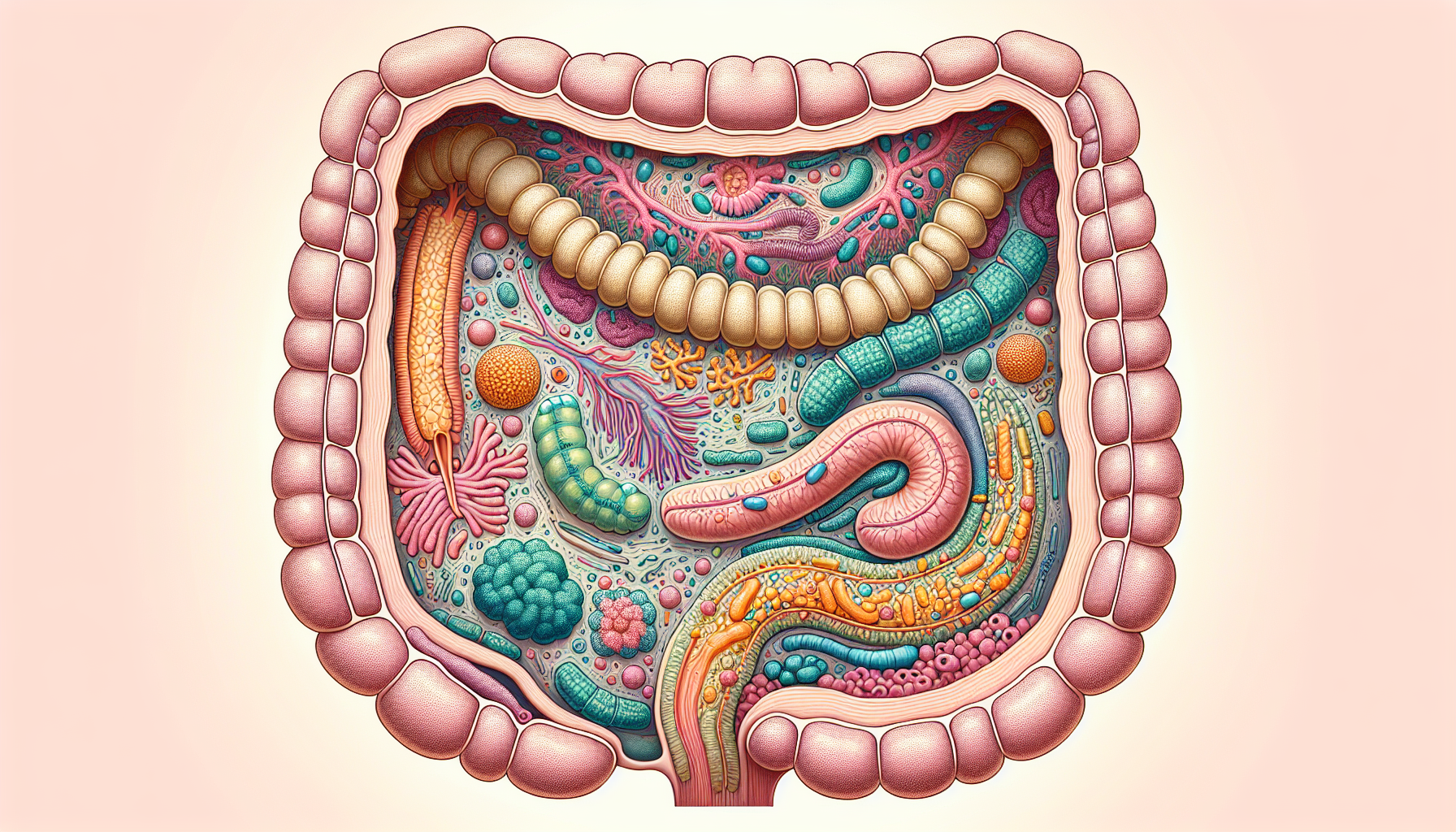The human gut is an ecosystem bustling with life. Microorganisms, collectively known as the gut microbiota, play a pivotal role in influencing our health well beyond the bounds of our digestive system. Emerging research continues to uncover the profound impact that gut health has on cognitive function. In this comprehensive exploration, we delve into the intricate connections between the gut and the brain, the implications for mental well-being, and practical strategies to harness the power of gut health in support of cognitive vitality.
The Gut-Brain Axis: Understanding the Connection
The gut-brain axis is a bidirectional communication network that links the enteric nervous system of the gastrointestinal tract with the central nervous system. This intricate connection is facilitated through a variety of pathways, including neural, endocrine, immune, and metabolic routes. The gut microbiota influences the brain’s structure and function by producing various neuroactive substances such as short-chain fatty acids (SCFAs), neurotransmitters, and inflammatory cytokines.
Research has shown that an imbalance in gut microbiota, known as dysbiosis, can lead to increased permeability of the gut barrier, commonly referred to as "leaky gut." This condition allows harmful substances to enter the bloodstream and potentially reach the brain, contributing to neuroinflammation and neurodegeneration.
For more detailed insights into the broader implications of brain health, consider reading The Importance of Hydration for Brain Function and Mental Health.
Cognitive Impairments Linked to Gut Dysbiosis
Cognitive disorders such as Alzheimer’s disease, Parkinson’s disease, and various forms of dementia have been linked to changes in the composition and function of the gut microbiota. For example, individuals with Alzheimer’s disease often exhibit altered gut microbiome profiles, which may exacerbate the condition’s progression.
Moreover, the gut microbiota influences the stress response system, including the hypothalamic-pituitary-adrenal (HPA) axis. Dysregulation of the HPA axis due to gut dysbiosis can lead to cognitive impairments associated with chronic stress, anxiety, and depression.
A deeper understanding of the connection between physical activity and cognitive health can be found in the article on Exploring the Link Between Exercise and Neurogenesis.
Nutritional Psychiatry: Diet’s Role in Cognitive Health
Nutritional psychiatry is a burgeoning field that examines the impact of diet on mental health. A diet rich in prebiotics and probiotics can foster a healthy gut microbiota, which in turn supports cognitive function. Prebiotics are non-digestible fibers that promote the growth of beneficial bacteria, while probiotics are live microorganisms that can restore balance to the gut microbiome.
Foods high in omega-3 fatty acids, antioxidants, vitamins, and minerals also contribute to a healthy gut environment and may improve cognitive outcomes. For example, omega-3 fatty acids have been shown to reduce inflammation and support neurogenesis, the process by which new neurons are formed in the brain.
To explore the specific benefits of omega-3 fatty acids on brain health, take a look at How Omega-3 Fatty Acids Support Brain Health.
Probiotics and Cognitive Function: The Evidence
Clinical trials have started to investigate the effects of probiotics on cognitive function. Some studies have found improvements in cognitive performance, mood, and stress levels in individuals consuming probiotic supplements. While results are promising, more research is needed to fully understand the mechanisms and determine the most effective probiotic strains for cognitive health.
A wealth of information on the role of diet and lifestyle in combating cognitive impairments can be found on the Digestive Health page of Avix Health.
External Resources Supporting Gut Health and Cognitive Function
To enhance the credibility of the information provided, here are several high-quality external resources that offer deeper insights into the relationship between gut health and cognitive function:
- A comprehensive review of the gut-brain axis and its implications for mental health can be found in a publication by the National Institutes of Health.
- Detailed information on the role of SCFAs in gut-brain communication is available through Frontiers in Endocrinology.
- The potential therapeutic effects of probiotics on cognitive function have been discussed in a study featured in Frontiers in Aging Neuroscience.
- An analysis of the impact of diet on mental health can be accessed through the American Journal of Clinical Nutrition.
- Insights into the gut microbiota’s role in neurodegenerative diseases are provided by research in the Journal of Neuroinflammation.
Practical Steps to Enhance Gut Health for Cognitive Well-being
To harness the cognitive benefits of a healthy gut, consider incorporating the following practices into your lifestyle:
- Diversify Your Diet: Include a wide range of plant-based foods to provide different types of fibers and nutrients that support a diverse microbiota.
- Consume Fermented Foods: Foods such as yogurt, kefir, sauerkraut, and kimchi are rich in probiotics.
- Limit Processed Foods: Processed and high-sugar foods can promote inflammation and negatively impact gut health.
- Stay Hydrated: Proper hydration supports the mucosal lining of the gut and the balance of good bacteria.
- Manage Stress: Chronic stress can alter the gut microbiota and exacerbate leaky gut. Mindfulness practices, exercise, and adequate sleep can help manage stress levels.
In Conclusion
The burgeoning field of gut-brain research is shedding light on the critical role gut health plays in cognitive function. By understanding the connections between our microbiome and our brain, and taking proactive steps to support gut health, we can potentially improve our cognitive longevity and overall mental well-being.
By embracing a holistic approach to health that includes diet, exercise, stress management, and potentially the use of probiotics, individuals can foster a thriving gut ecosystem that supports a sharp and resilient mind. As research continues to evolve, the adage "you are what you eat" may very well extend to "you think what you eat," emphasizing the powerful influence of our gut on our cognitive health.



